Why do we scratch their head when they think? How did the Russian gestures
Categories: Culture
By Pictolic https://mail.pictolic.com/article/why-do-we-scratch-their-head-when-they-think-how-did-the-russian-gestures.htmlIf you believe the psychologists, a good half of the information we perceive through visual receptors, analyzing the body language of the interviewee. Thanks to the gestures, the speech becomes emotionally charged, alive and, accordingly, is better absorbed.
Active gestures to a greater extent characteristic of southern peoples, but we also love waving and different ways to bend the fingers. This one is not particularly interested in why, for example, we scratched the back of his head when thinking hard. The story of the origin of Russian gestures very entertaining.
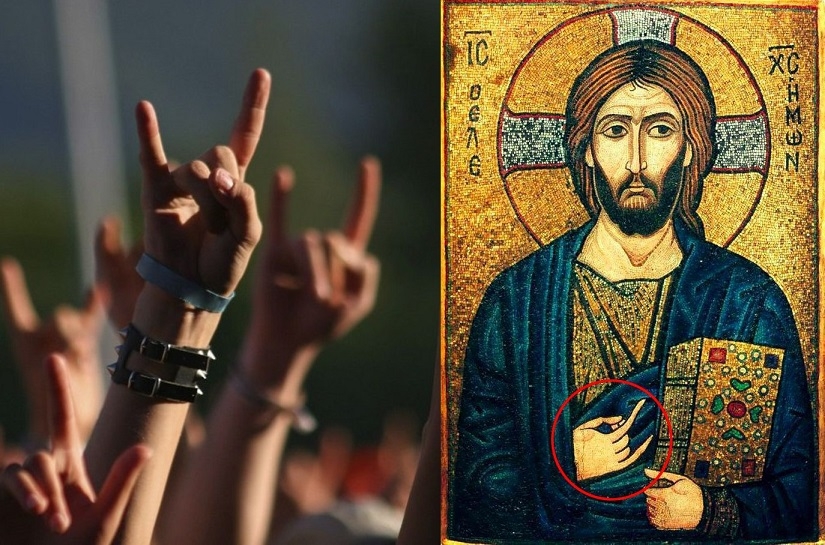
1. Fig
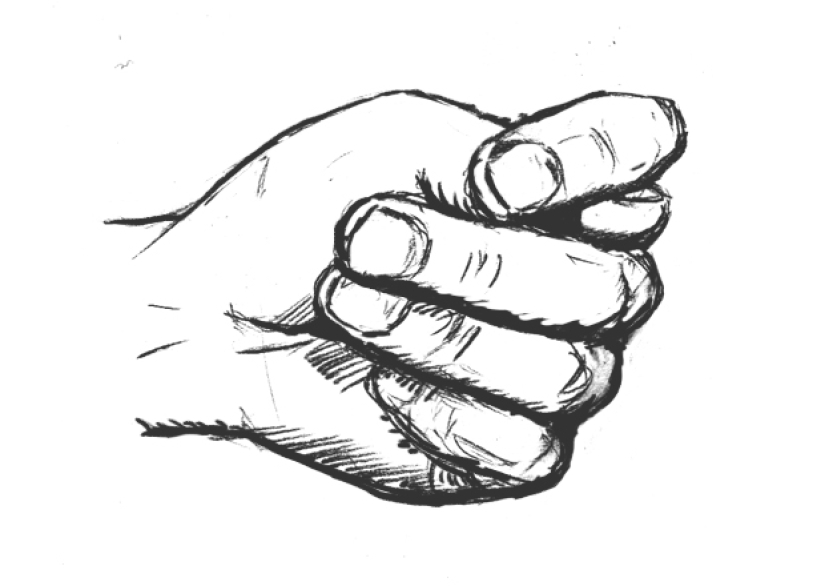
In Russia on middle finger probably learned from visiting the Germans, who by this gesture was trying to seduce Russian ladies. There is even a theory that "guys" is derived from the German expression fick-fick machen was a traditional German invitation to intimacy. However, in the Russian tradition, the symbol of this gesture was transformed into a symbol of a categorical failure. Obviously, due to the high morality of Russian women.
2. To beat his chest
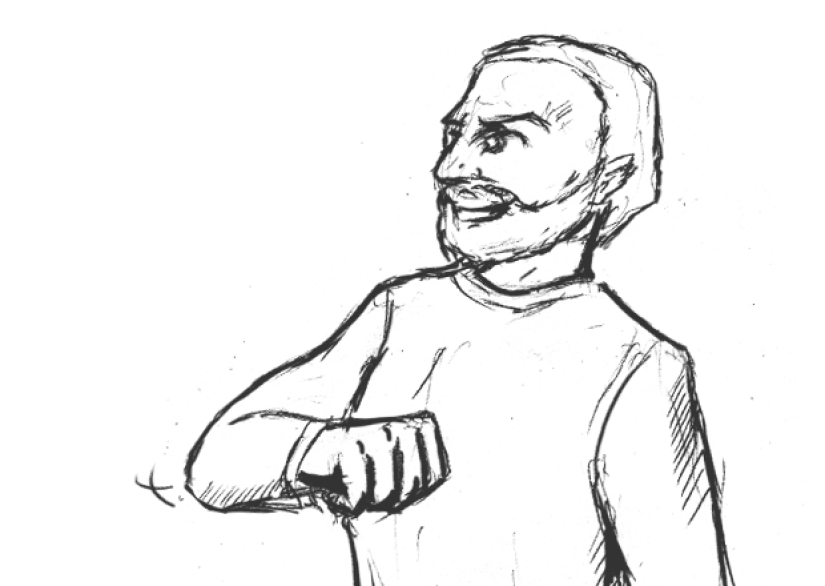
According to one version, the gesture came from the military traditions of nomads and was brought to Russia from the Tatar-Mongols. So they made an oath to his overlord. Punches to the chest as a gesture was to show the faithfulness of man.
3. Click on neck
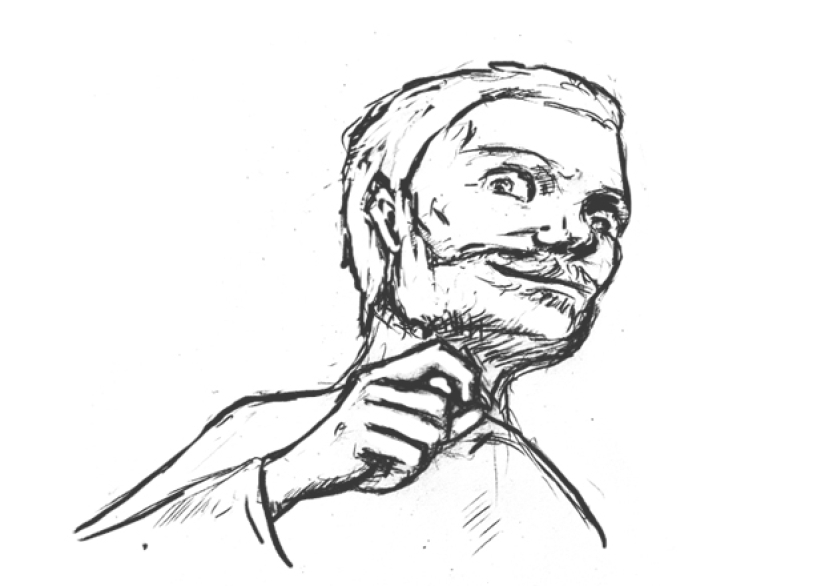
The gesture of the Russian drinking traditions, similar in meaning popular in the late XIX — early XX century, the idiom "lay the tie." Interestingly, this technique was adopted speculators alcoholic beverages during prohibition law, which Nicholas II established in the Russian Empire in 1914.
4. Scratching your head
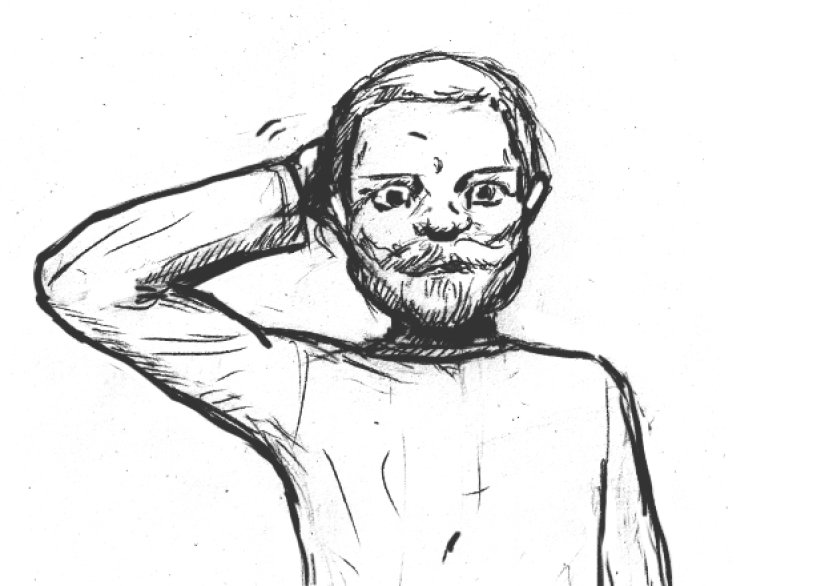
Russian man scratches his head when something puzzled. Question: why? Of course, it is unlikely to stimulate the blood circulation of the brain. Perhaps this gesture came from the folk magic: so many of our ancestors were summoned to the aid of the ancestor, a genius of sorts.
5. Tear the shirt on his chest
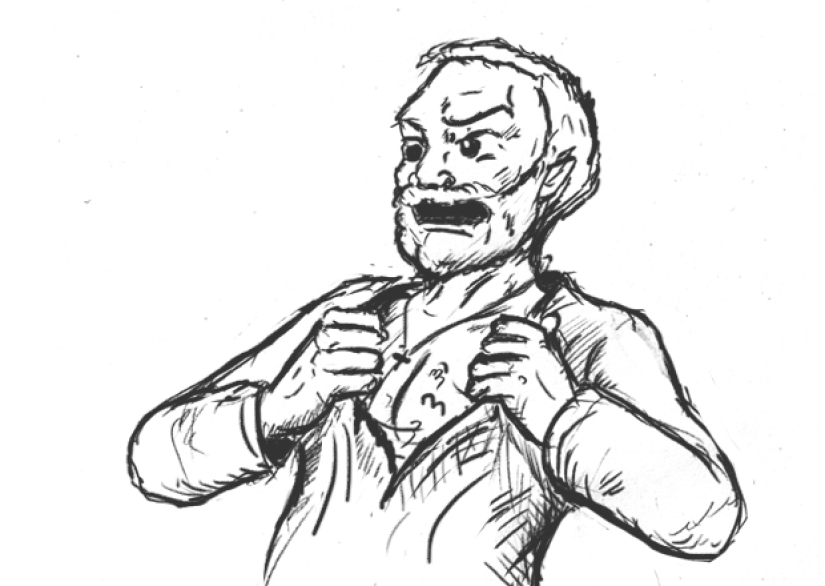
It was originally an improvised vows. There is a hypothesis that expressive gesture our ancestors showed their affiliation to the Orthodox faith, demonstrating the cross. Also, when executions and some corporal punishment, executioners tore the unfortunate top of the shirt. A voluntary tearing clothes as a persuasive argument was intended to show the willingness of the person to ascend the scaffold for the truth.
6. "Goat"

This gesture, it turns out, was not in prison and not in the rock environment. "The goat" for several thousand years, and originally she was associated with protection from black magic and evil spirits. Probably, the older generation still remembers letting simple poem: "there Is a creep for small children..." when adults fingers to show how butting goat. It's not just a game with a child — thus our ancestors shot the evil eye with the children.
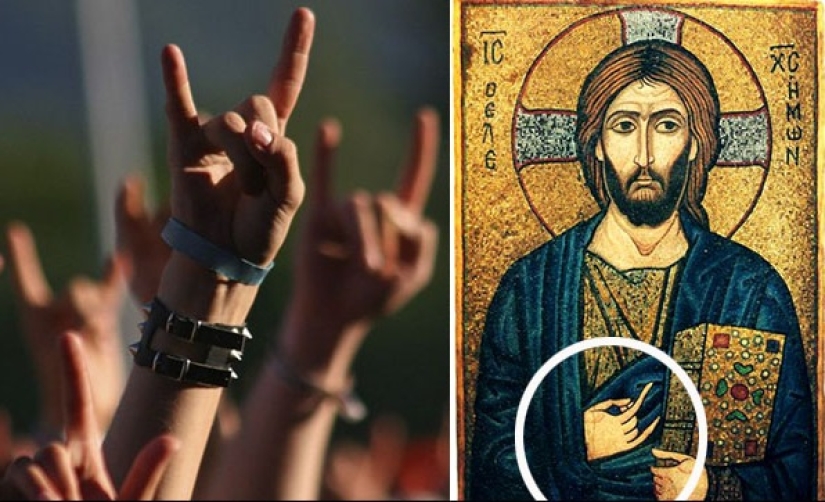
In addition, the "goat" was accompanied by their performances of Greek speakers — this configuration is meant "counsel." From the ancient rhetoricians this gesture was adopted by the Christian priests, who often accompanied his sermon is "goat". Some Orthodox icons, you can see the Savior and the saints with exposed forward the pinky and index finger.
7. Throw a hat to the ground

Headdress (with beard) for Russian men in the old days, symbolized dignity. Public removing caps was considered a disgrace, a sort of a civil penalty. Usually this procedure was subjected to debtors. Voluntary throwing to the ground the caps have demonstrated a willingness to go for the crazy risk, in which the price of failure could be the expulsion of man from society.
Keywords: Culture | Russian Federation | Traditions | Gestures | Ancestry | Ancestors
Post News ArticleRecent articles

It's high time to admit that this whole hipster idea has gone too far. The concept has become so popular that even restaurants have ...

There is a perception that people only use 10% of their brain potential. But the heroes of our review, apparently, found a way to ...
Related articles

These artists love cats, but also masterfully draw them, often complementing funny and life signatures. Meet! --> Russian ...

Beloved by many, actor Mikhail Boyarsky has always been distinguished not only by his cheerful disposition and desperate, sometimes ...

What kind of wedding traditions do not happen! The Scots pour dirty slush over the bride, some peoples of India have decided to get ...

New Year's is a time to surprise and delight loved ones not only with gifts but also with a unique presentation of the holiday ...